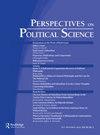《政治的使用与滥用:卡尔·罗夫与布什总统》
Q4 Social Sciences
引用次数: 0
摘要
William G.Mayer是东北大学政治学教授,著有许多关于美国选举和政党的畅销书。他的最新著作《政治的使用和滥用》探讨了乔治·W·布什的选举和国内政策,特别强调了他与首席政策顾问卡尔·罗夫的关系,后者也是他的竞选经理和国内政治顾问。两人的抱负和自我评估可以从他们自己的话中总结出来。首先是2008年的布什总统:“听着,我知道这听起来可能很傲慢,但我重新定义了共和党。”然后是卡尔·罗夫:“罗夫(暗示)2000年的选民……调整时机已经成熟,并暗示……他就是解决这一问题的人……”约书亚·格林,《罗夫总统任期》,《大西洋月刊》,2007年9月7日。人们注意到两个大的“R字”:重新定义和重新调整。梅耶尔进行了仔细而冷静的分析,以确定布什所宣称的成就的重新定义或重新定位的特征,并判断它是否实现了。同样,他证明,对罗夫来说,重塑共和党是产生历史性“重组”的战略计划中必要的第一步,与罗斯福、安德鲁·杰克逊、亚伯拉罕·林肯以及罗夫所说的威廉·麦金利所取得的成就相当。因此,Mayer研究了“政治重组”的理论,以及Rove和他的老板是否实现了这一目标的证据。这个新的共和党会是什么样子?简单的描述,也可能是最好的描述,是它应该看起来“很好”。“不让一个孩子掉队”(NCLB)的口号是它的完美表达。这本该在共和党的大帐篷里画得到处都是,主要法案仍然是国家安全、低税收、小政府和明智的最高法院任命。Rove所针对的“重组”将使共和党在很长一段时间内,甚至几十年内成为美国政治的主导党。梅耶尔毫不犹豫地表明罗夫和他的老板并没有接近这一点。无论是现在,还是直到今天,都没有发生向共和党的重大转变。更有趣的问题是,“为什么这个计划失败了?”这本书的标题表明了梅耶尔的答案。罗夫同时也是总统国内政策和政治事务的首席顾问,这在最近的美国政府中是前所未有的。布什在这两个方面都依赖罗夫的建议,而罗夫在这两方面都不明智。此外,他更喜欢政治,梅耶尔将其定义为“获取和保持权力的艺术”,而不是真正的行政工作。罗夫和跟随他的布什制定了平庸的政策,同时削弱了他们政党的权力。总之,这完全是梅耶尔的控诉。他说得对吗?梅耶尔详细探讨了两个例子,即前面提到的“不让一个孩子掉队”和“富有同情心的保守主义”,这对回答这个问题很有用。《使用与滥用》中最长的一章追溯了同情保守主义的历史,从20世纪90年代开始,一直到奥巴马时代初悄然消亡。它的标题是“当你没有太多的意识形态时,很难有意识形态的继承人。”毫无疑问,富有同情心的保守主义思想吸引了布什。几乎所有见过乔治·布什的人都称他为正派和和蔼可亲。布什有一颗评论家可能会称之为“柔软的心”。作为一名重生的基督徒,布什本人可能更喜欢圣经中的“血肉之心”。在1999年的一场竞选辩论中,当被问及“你最认同哪个政治哲学家或思想家,为什么?”时,布什回答道:“天哪。因为他改变了我的心。”。从来没有人说罗“心软”,但他完全赞同同情保守主义,至少在推销时是这样。事实上,他https://doi.org/10.1080/10457097.2021.1951567本文章由计算机程序翻译,如有差异,请以英文原文为准。
The Uses and Misuses of Politics: Karl Rove and the Bush Presidency,
William G. Mayer is Professor of Political Science at Northeastern University, and the author of a number of well received books on American elections and parties. His latest book, The Uses and Misuses of Politics, examines the elections and domestic policies of George W. Bush, with particular emphasis on his relationship to his chief policy advisor, Karl Rove, who was also his campaign manager and domestic political advisor. The ambitions and self-assessment of the two men can be gathered from their own words. First, President Bush, in 2008: “Look, I know that this probably sounds arrogant to say, but I redefined the Republican Party.” Then Karl Rove: “Rove [suggested] that the electorate in 2000 ...was ripe for realignment and implied ... that he was the guy who had figured it out...” Joshua Green, “The Rove Presidency”, Atlantic, September 7, 2007. One notices the two large “R-words”: redefinition and realignment. Mayer conducts a careful and dispassionate analysis to determine the features of the redefinition or reorientation that Bush claimed as his achievement, and to judge whether it was achieved. Likewise, he demonstrates that, for Rove, remaking the GOP was the necessary first move in a strategic plan to produce an historical “Realignment,” comparable to those achieved by FDR, Andrew Jackson, Abraham Lincoln, and, according to Rove, William McKinley. Accordingly, Mayer examines theories of “Political Realignment,” as well as the evidence bearing on whether Rove and his boss had achieved one. What was to be the look of this new GOP? The simple description, and likely the best, is that it was supposed to appear “Nice.” The slogan “No Child Left Behind” (NCLB) was its perfect expression. This was to have been painted all over the GOP big tent, with the main acts still being national security, low taxes, smaller government, and sane Supreme Court appointments. The “Realignment” Rove aimed at would have made the GOP the dominant party in American politics for an extended period, perhaps decades. Mayer has little trouble in showing that Rove and his boss did not get close to it. There was no seismic shift toward the GOP, either right away, or up to the present day. The more interesting question is, “Why did this plan fail?” The book’s title indicates Mayer’s answer. Rove was at the same time the President’s chief advisor on domestic policy and on political matters, something without precedent in recent American government. Bush relied on Rove’s counsel in both areas, and Rove counseled unwisely in both. Moreover, he favored politics, which Mayer defines as “the art of acquiring and keeping power,” over the real work of administration. Rove, and Bush following him, produced mediocre policy, and at the same time undermined the power of their party. In all, this is quite an indictment by Mayer. Is he correct? A look at two instances that Mayer explores at some length, the aforementioned “No Child Left Behind” and “Compassionate Conservativism,” is useful in answering this question. The longest chapter in “Uses and Abuses” traces the history of Compassionate Conservativism from its inception in the 1990s all the way to its quiet death at the start of the Obama years. It is entitled, “It’s Hard to Have Ideological Heirs When You Don’t Have Much of an Ideology.” There can be no doubt that the idea of compassionate conservatism appealed to Bush. Nearly everyone who has met George Bush personally, calls him decent and amiable. Bush has what a critic might call a “soft heart.” A born-again Christian, Bush himself might prefer the Biblical language of “a heart of flesh.” In a 1999 campaign debate, in answer to the question “What political philosopher or thinker do you most identify with and why?,” Bush answered “Christ. Because He changed my heart.” No one has ever said Rove is “soft-hearted,” but he was completely on board with Compassionate Conservatism, at least as a sales pitch. Indeed, he https://doi.org/10.1080/10457097.2021.1951567
求助全文
通过发布文献求助,成功后即可免费获取论文全文。
去求助
来源期刊

Perspectives on Political Science
Social Sciences-Political Science and International Relations
CiteScore
0.20
自引率
0.00%
发文量
24
期刊介绍:
Whether discussing Montaigne"s case for tolerance or Nietzsche"s political critique of modern science, Perspectives on Political Science links contemporary politics and culture to the enduring questions posed by great thinkers from antiquity to the present. Ideas are the lifeblood of the journal, which comprises articles, symposia, and book reviews. Recent articles address the writings of Aristotle, Adam Smith, and Plutarch; the movies No Country for Old Men and 3:10 to Yuma; and the role of humility in modern political thought.
 求助内容:
求助内容: 应助结果提醒方式:
应助结果提醒方式:


